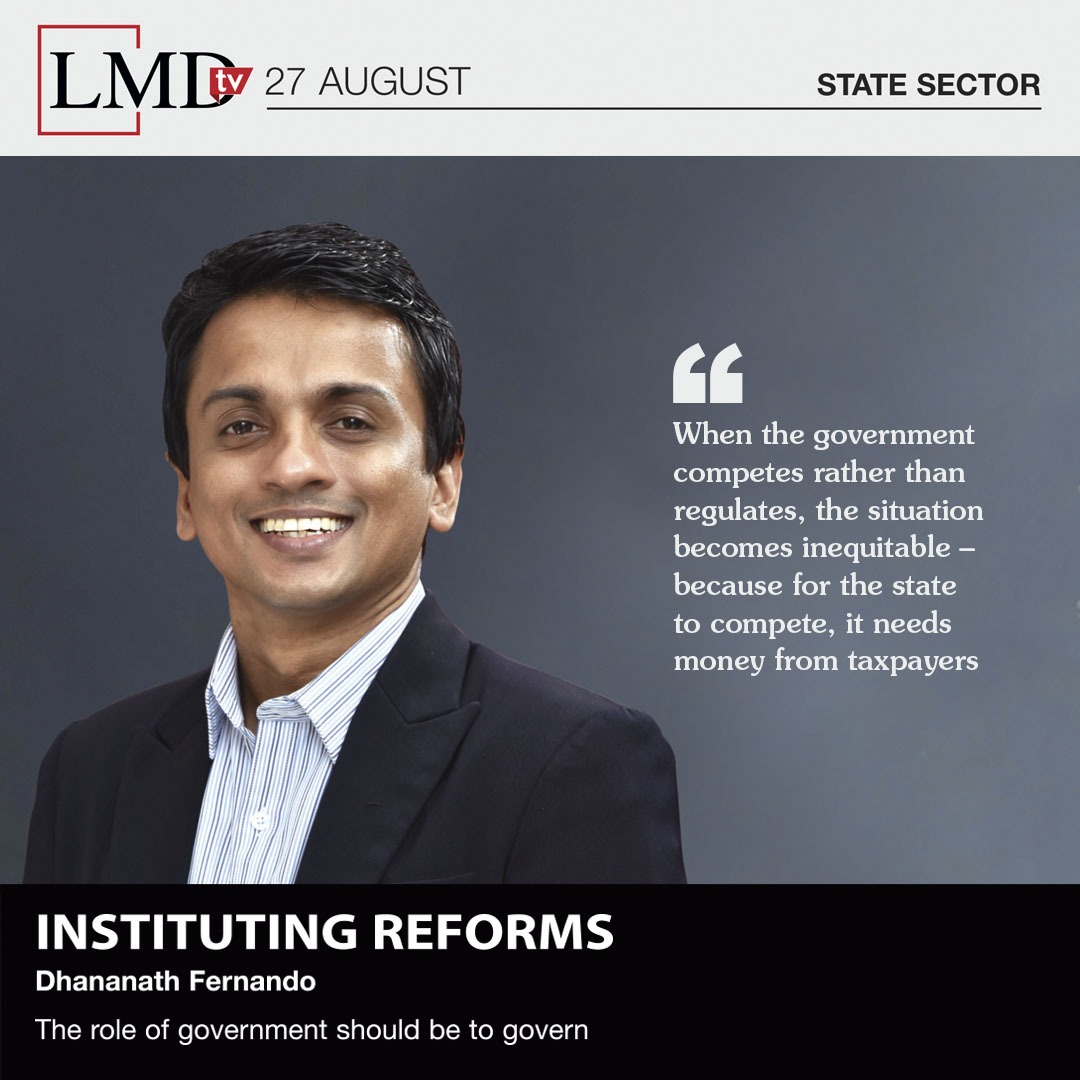LMDtv 3

Ensuring good governance is a cornerstone of Sri Lanka’s growth journey and the country has been making progress – albeit slowly – in this direction. “Poor governance is often a challenge for reforms, be it economic or governance reforms,” the CEO of Advocata Institute Dhananath Fernando asserted, during a recent LMDtv interview.
“While some of the post-crisis reforms introduced – particularly those related to the Central Bank of Sri Lanka and public debt management – address most of the loopholes that cause governance issues, a lot more work needs to be done,” he maintained.
Fernando explained that “on the corruption front for example, it’s the procurement law that we have to enact to minimise corruption. If we only depend on the people element without minimising corruption and introducing structural reforms, governance efforts won’t yield results.”
“The reforms structure that’s been installed is working to an extent but it’s important that we institute checks and balances too.”
It’s extremely important for state-owned enterprises (SOEs) to be reformed. Fernando revealed that there was an attempt to reform network enterprises such as the Ceylon Electricity Board (CEB)) and National Water Supply and Drainage Board (NWSDB), and bring some others under the State-owned Enterprise Restructuring Unit (SRU), to try and attract investors.
He continued: “However, the Civil Society Governance Diagnostic Report has recommended bringing all SOEs under one holding company. This will minimise ministerial oversight and hand over the leadership appointment process to the director boards.”
“Since there’s no need for the government to maintain certain institutions, they can be privatised. The state could operate some of them under a state-owned holding company while others will probably have to be merged or moved into public-private partnerships.”
While on the surface, SOEs may appear to create a more equitable playing field, he explained that they actually don’t do so in practice.
“When the government competes rather than regulates, the situation becomes inequitable – because for the state to compete, it needs money from taxpayers. So it’s an unfair call to the general public; and it discourages entrepreneurs.”
To this end, he cited the example of the Department of Railways: “There are enough private sector entrepreneurs to operate trains. This was the case even in the past when there were trains operated by the private sector. Unfortunately, the government is restricting entrepreneurs from entering the market and providing a better service because it’s trying to do it on its own, simply to provide reasonably priced tickets.”
Though it’s widely believed that the quality of service provided by Sri Lanka’s railways has declined rapidly over the years, he explained that the government is making it more inequitable to the general public by being the sole operator.
Fernando continued: “Due to poor train services, the public has to buy cars or motorbikes to commute to work in Colombo. If they had better service even at a higher price, it would be cheaper than travelling in their own vehicles. This would also reduce congestion on the roads and have a positive impact on the environment.”
He added: “So while SOEs looks good on the surface and are being run with good intentions, the process isn’t equitable. The railway department has been running at continuous losses and it has been either taking money from the taxpayer or borrowing at treasury bill or bond rates to meet its commitments.”
“To make it equitable, the government can of course retain a stake and maintain the railway lines. It can charge the private sector for using the lines and pay better salaries to the railway staff. This would be far more equitable from an overall economic point of view,” Fernando suggested.
And he concluded: “The role of the government is to ensure good governance rather than running a business.”

